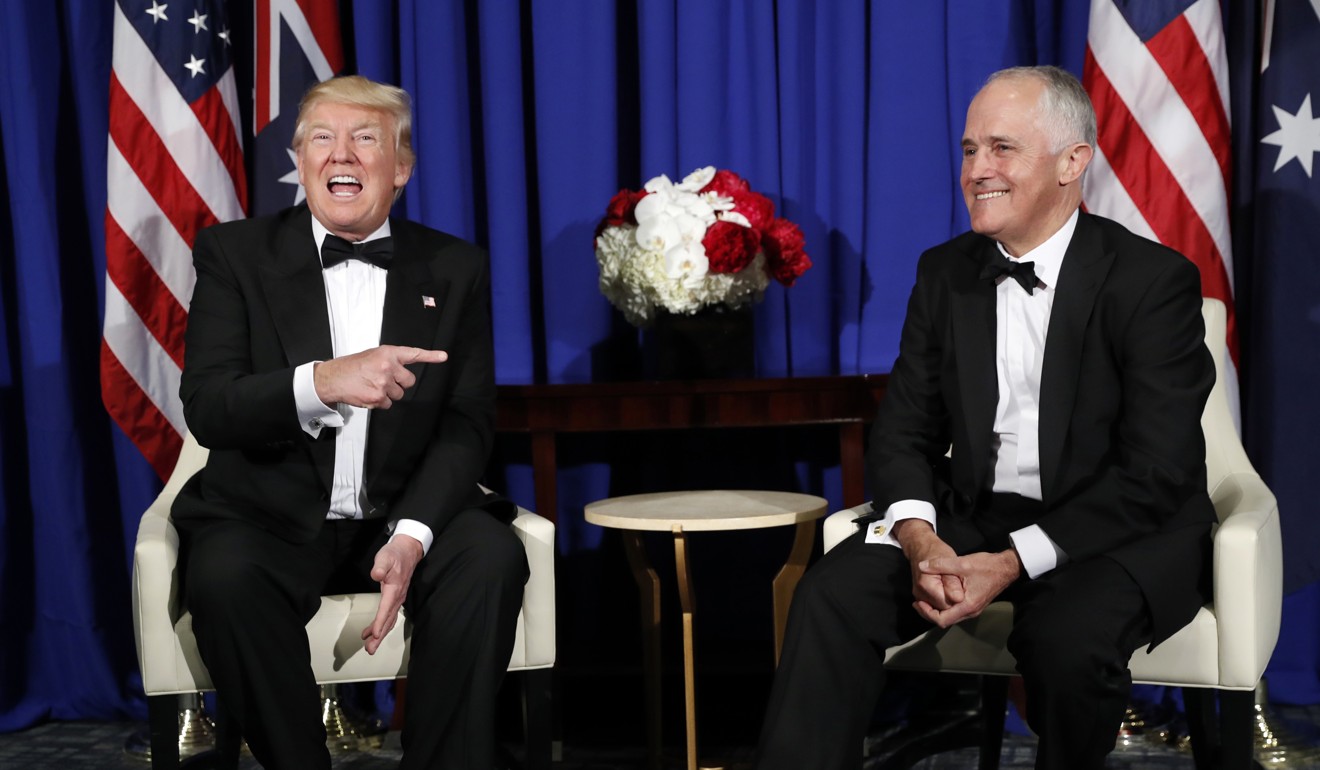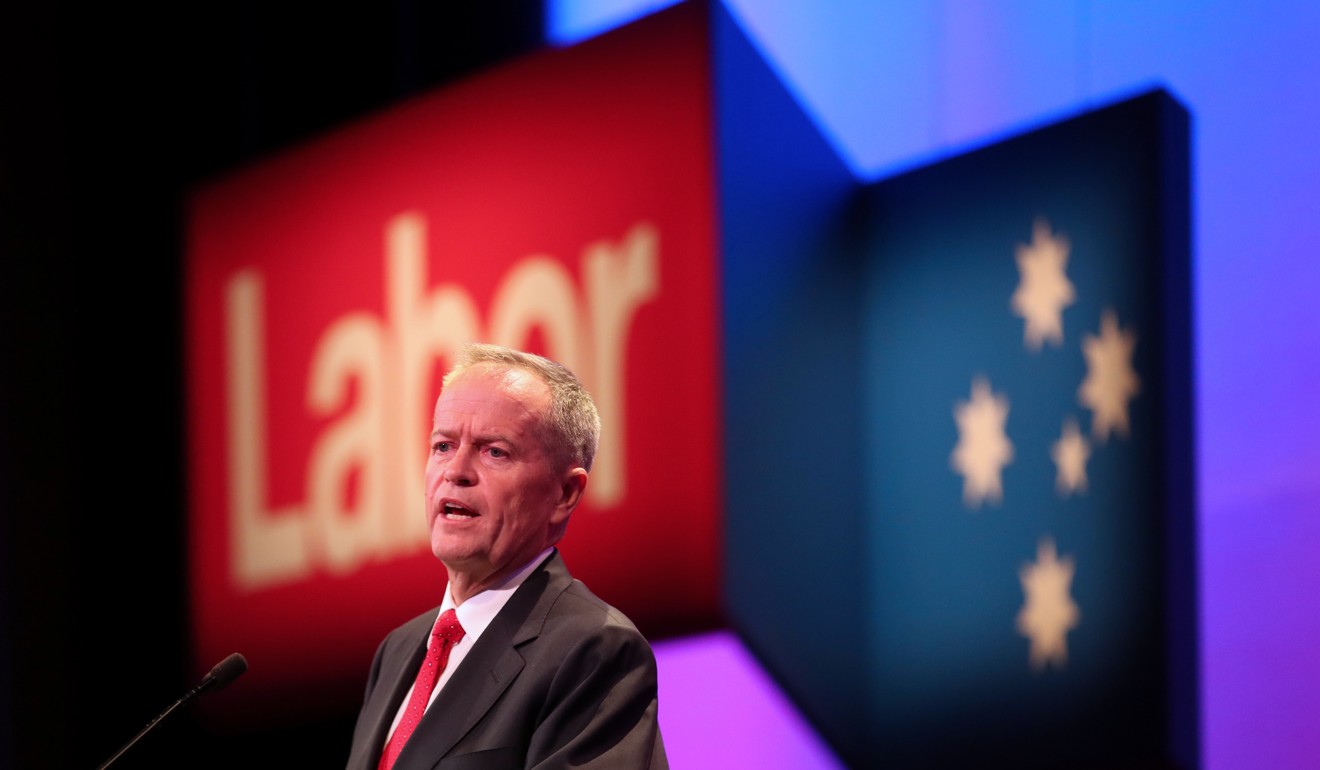
What lucky country? For Australians, politics fails to inspire
- Australia has had seven prime ministers since 2007 – the pattern of leadership challenges and party-room back-stabbing has left the public increasingly cynical and disengaged
- Prime Minister Scott Morrison leads the centre-right Liberal Party but he appears poised to be replaced by Bill Shorten, leader of the opposition Labor Party
Boasting more than a quarter-century of uninterrupted economic growth and one of the wealthiest liberal democracies, Australia seems to epitomise its nickname as “the lucky country”.
Yet ahead of a federal election due to take place by May, Australians aren’t convinced. Their faith in politics – roiled by years of leadership churn, populist rumblings and policy inaction – has cooled to record lows.
Just 41 per cent of Australians are satisfied with their country’s democracy, according to a 2018 study by the Museum of Australian Democracy and the Institute for Governance and Policy Analysis, a 45 per cent plunge since 2007.
“Successive governments have become fixated on themselves, on their internal dynamics, on personalities, on settling scores, as well outright factionalism, and lost sight of the national interest,” said Terry Barnes, who advised former prime minister Tony Abbott while he was a minister in a previous government.
Successive governments have become fixated on themselves, on their internal dynamics
Since 2007, Australia has had seven prime ministers: John Howard, Kevin Rudd, Julia Gillard, Rudd again, Tony Abbott, Malcolm Turnbull, now Scott Morrison. The pattern of leadership challenges and party-room back-stabbing – on both sides – has fuelled an image of the country as the coup capital of the democratic world. It has also called into question whether the major parties have the same appeal to their constituencies as they did a generation ago – or whether those ties are fraying and whether this has in turn contributed to the widespread disengagement and deepening cynicism.
Morrison, the conservative evangelical Christian incumbent, took over the leadership of the centre-right Liberal Party in August after a revolt against Turnbull, a relatively moderate investment banker-turned-politico. Although more popular among the general public than his successor, Turnbull was unloved within the right wing of his party due to his more centrist positions on hot-button issues including energy prices, immigration and gay marriage.
Thai elections: people want a fair vote and ‘real PM’, but will they get them?
Within his own party – and among its cheerleaders on talkback radio – Turnbull’s conservative bona fides were often the subject of debate, and even dark whispers that he could in fact be “of the left”.
After all, he held the seat of Wentworth, encompassing Sydney’s well-heeled, cosmopolitan eastern suburbs such as Paddington, Bronte, Tamarama and Bondi, among others. This disconnect emboldened Abbott – himself knifed by Turnbull as Liberal leader and therefore prime minister in 2015 – to back the insurgency against Turnbull in August 2018. When that insurgency foundered, Morrison emerged as the most palatable consensus candidate still standing, becoming party leader and prime minister almost by default.

“I think it’s both a reflection and a cause; the leadership revolving door has angered voters on all sides,” Barnes said. “It has created instability and personal animosities that tear a government apart.”
Even as opinion polls show the centre-left Labor Party firmly on track to end six years of rule by the Liberal Party-led coalition, the public appears poised to pull the lever for the opposition more out of resignation than enthusiasm. Labor leader Bill Shorten, a former trade union boss from Melbourne, is even less popular than Morrison. In a September opinion poll commissioned by The Guardian, Shorten’s approval rating was just 35 per cent, compared to 42 per cent for Morrison.
Indonesia’s election showdown: Prabowo woos ethnic Chinese, Jokowi banks on distaste for his competitor
“When it comes to the antics of our current political class, the Australian public is constantly reminded they are pygmies standing on the shoulders of reformist giants like Hawke, Keating and Howard,” said Barnes, referring to the Labor and Liberal prime ministers who governed between 1983 and 2007. “Our ongoing economic prosperity is still riding on the backs of those prime ministers and their far-reaching reforms, and has little to do with their successors.”
Although Australia’s electoral system and compulsory voting ensure the continuation of a de facto two-party system – the Liberals are part of a coalition with the National Party, which traditionally represents farmers and rural voters – loyalty to the major parties has collapsed. More than one in four Australians opted for a minor party at the 2016 election, the highest proportion since the second world war.

“The major parties are only too painfully aware – and this has played out in by-elections in this last year – people are willing to walk away from parties they have traditionally voted for,” said Chris Salisbury, a political science researcher at the University of Queensland.
Unlike other developed countries, Australia escaped the global financial crisis largely unscathed, racking up a record-setting 27 years and counting without recession. The median wealth per adult, US$191,453, places the country atop the global rankings, although wealth inequality has risen in recent decades. The political establishment, according to Salisbury, has struggled in the face of “circumstances that have seen a lot of people experience conditions where they feel like they are worse off than they used to be”.
Will Lee Hsien Loong call for an early election?
“It is a little perplexing, even for us Australians, and I’ve no doubt that it’s perplexing for the government who are talking about delivering a budget … early next year that will present a path back to surplus for the first time since the global financial crisis,” he said.
In its pitch to voters, Labor has acknowledged the populist discontent simmering within the electorate.
“Our opponents are distrust and disengagement, scepticism and cynicism,” Shorten said last month at a party national conference which saw the announcement of big-spending pledges ranging from subsidised housing to free kindergarten. “And our Labor mission is not just to win back government, it is to rebuild trust in our democracy, to restore meaning to ‘the fair go’.”
India’s election will test limits of Narendra Modi’s populism
Barring a massive upset, Labor is expected to take power at the next election. Whether the party can stem the bleeding at the heart of Australian democracy is much less clear.
“People will vote Labor in May not because they have confidence in Shorten or Labor but simply because they are not the government – just as people voted for Tony Abbott in 2013 to reject the then-Labor government’s internal chaos,” Barnes said. “They also hope that the toxic political cycle will finally be broken – but that doesn’t mean they believe it will happen.” ■

